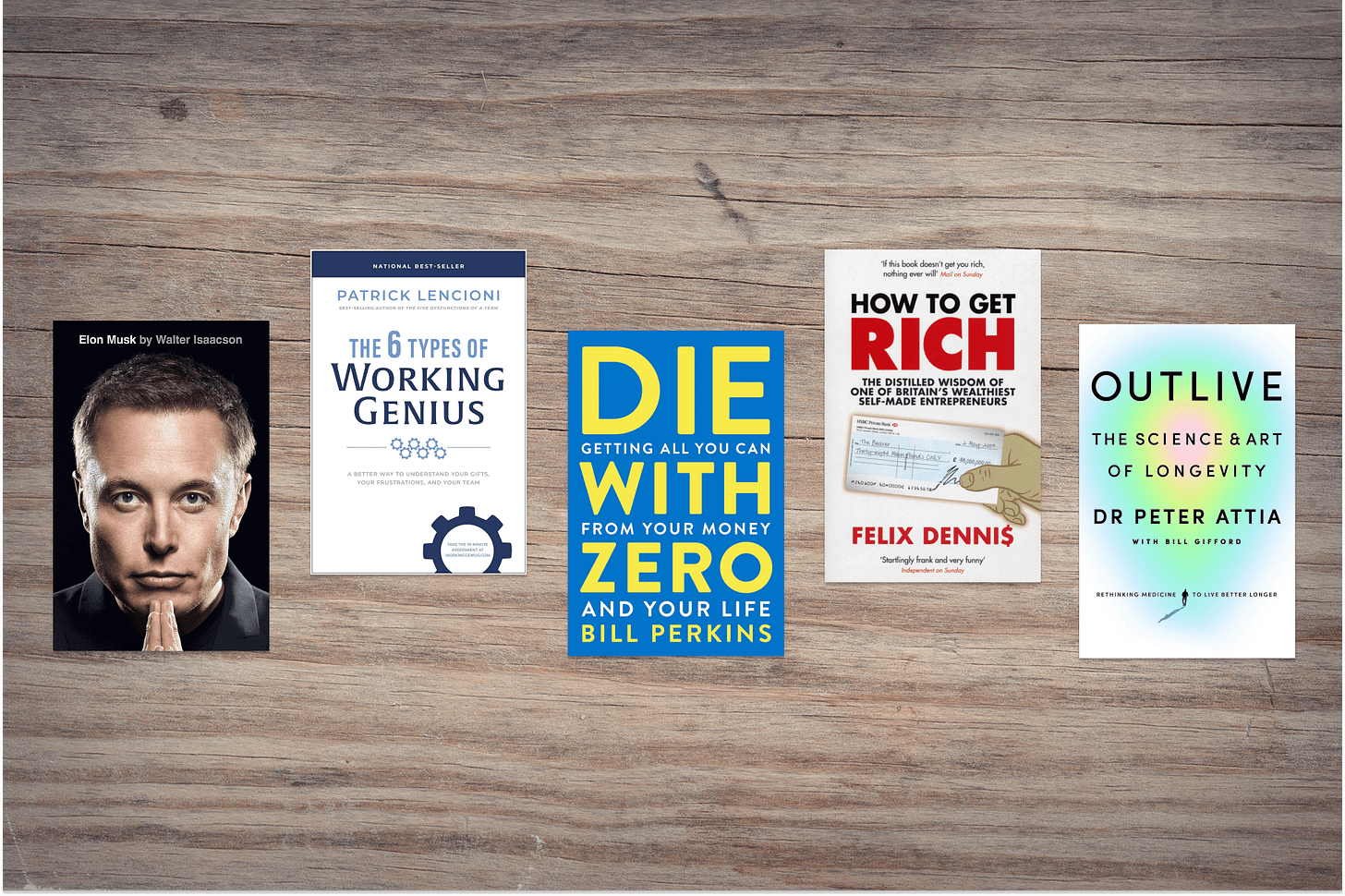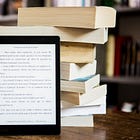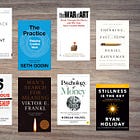Last year, I wrote extensively on how I've learned to read more books. In 2021 and 2022, I managed to read over 60 books. In 2023, the score is a measly 19 books. What happened that meant the destruction of my reading habit?
Sleep problems
I had previously used 9 PM to 10 PM as my reading time, but in 2023, I started waking up earlier at 4 AM, often attempting to get back asleep. Sometimes it happened, sometimes not. But my tiredness prevented me from having much energy in the mornings, spending all of it to make myself more prepared to start work at 8 AM.
At the end of the year, I realized that I should shift my reading to the morning. If I'd wake up at 5 AM, why not spend sixty minutes reading a book? Now, in December, I feel like I'm back on track to reinvigorating my reading habits for 2024 by using my time in the morning on books.
Attempted to stop audiobooks
I had never felt like audiobooks provided me with great takeaways. I couldn't take highlights like on physical books or the Kindle. In early 2023, I decided to stop consuming audiobooks entirely and focus on Kindle books. Reading and not listening meant I needed to find the time to sit down and get more books to read. With audiobooks, you can consume books in the car, do laundry, cook, clean, etc. When that was removed, the number of books I'd consume dropped drastically.
At the end of 2023, I have started introducing some audiobooks back into my life. Thick autobiographies are especially great content to consume when doing your chores. I decided that I could subconsciously pick things up from these books; they don't need to be word-by-word notes of what was written. A subconscious highlight is lovely.
Work got in the way
I started a VC fund this year. It's practically like doing a startup; if you want to succeed, you can't do a VC fund as one project among many other side projects. It needs to be The Project. So, I spent more time on work in 2023 than in the past four years. As the work moves away from fund formation and settles more into investing in great companies, I believe I will have more time again for reading. Working 12-14 hours and afterward reading felt hard, but maybe 8-10 hours is more doable.
Favorite books of 2023
In 2019, 2020, and 2021, I listed ten books as favorites, but like in 2022, this time, I will focus on five books I really liked. It's a dense list of books that mattered to me.
1. 📕 Elon Musk by Walter Isaacson
Walter Isaacson is getting to a different level as a biographer. This book was so much fun to read. Whatever you think about Elon Musk, he is a force of nature, and we can all learn from his story. Here are the three topics that the book covers well.
Being curious about something that takes humanity to the next level. Musk truly goes after areas that aren't just incremental improvements but stuff like going to Mars. He started his career as a video game maker but never felt that making video games was a grand enough mission.
Need not to stay still. Musk added Twitter to the lineup of companies he runs because he needed to do it. The book delves deep into Mush's motivations as an entrepreneur.
His father. We are who we are primarily because of our upbringing. Musk had a problematic relationship with his father, and his childhood circumstances reflect how he pursued his life.
2. 📕 The 6 Types of Working Genius by Patrick Lencioni
I've previously read lots of Patrick Lencioni's books. I've written a few pieces about Lencioni's books before and did a podcast with Miska Katkoff and Sophie Vo some time ago. I read Lencioni's latest book, The 6 Types of Working Genius, early this year. I found a framework from the book that I'd been looking for for over a decade. A framework that would help me understand why I hated parts of what my "work" required and why others were so good at the things that I hated.
Here's a quote from the book, "people doing ideation get frustrated when their ideas don't come to fruition, and they blame the implementers, wondering why they can't execute their fantastic inventions. At the same time, the implementers are frustrated with the lack of success and wonder why the ideators don't give them better ideas to implement in the first place."
3. 📕 Die with Zero by Bill Perkins
This book has two strong messages.
First, your life experiences are what matter the most in life. You will get most of them early in life. Later in life, when you are too frail to acquire significant new experiences, you can still derive great enjoyment from, e.g., highlight videos. Think about it: now is the best time to get out there and start experiencing things. Not when you are retired.
By seeing how many weeks I've got left, for example, I'm reminded how many (or how few) weekends I've got. Seeing the number of years reminds me that I've got only so many Christmases to enjoy or so many summers or autumns. And those in-your-face reminders have changed my thoughts and the things I do—like the people I reach out to and how often I tell people I love them.
Second, to maximize life enjoyment, you must know when you will peak. Not the dollar amount of accumulated wealth but the biological age peak.
In general, most people hit their peak between the ages of 45 and 60. That's what our simulations show: For most people, waiting until they are past this age range causes suboptimal fulfillment results because they end up dying with more than zero, running out of time in which to have many fulfilling experiences.
4. 📕 How to Get Rich by Felix Dennis
This book is a definite breakdown of how anyone, with applying skills, tenacity, and execution, can accumulate wealth. It details how activities that may sound disinteresting to someone can become interesting as skills develop and results from the activities start to show results.
Tunnel vision helps. Being a bit of a shit helps. A thick skin helps. Stamina is crucial, as is a capacity to work so hard that your best friends mock you, your lovers despair, and the rest of your acquaintances watch furtively from the sidelines, half in awe and half in contempt. Luck helps – but only if you don't seek it.
Here's a note I wrote down as I read this book: I was good at math in school. But I wasn't great. I didn't spend my waking time thinking about math. As an entrepreneur, I'm obsessed with it. I can't stop thinking about it. I think that's what you want: not to stop thinking about it. It's not determination; it's an insatiable curiosity that leads to progress and success in a field. Determination is a product of curiosity.
5. 📕 Outlive by Peter Attia
As we enter the late stages of midlife, people start dying because of four reasons: cancer, heart disease, Alzheimer's, and metabolic disease. This book gives us hope and guidance on we could avoid these ailments before we at least reached a hundred years.
Exercise has the greatest power to determine how you will live out the rest of your life.
Attia makes the point that diet is not enough. Your protein consumption should be high and paced accordingly throughout the day. But, we need to exercise regularly to avoid issues like insulin resistance, where fat gets stored around our bodies. Just 90 minutes of exercise per week can reduce your likelihood of dying by 14%.
Here's the simple three-part exercise program that Attia outlines in the book.
Zone 2 training four times a week. Here's what I do: 30-45min on a stationary bike or row machine, sometimes a swim. The idea is to keep your pace reasonable but not go beyond the point where you can't hold up a conversation.
VO2 max training once a week. I do stationary bike sessions where I go crazy for four minutes, then four minutes of Zone 1 or 2. Then, I repeat this four times.
Strength training three times a week. I do three distinct days: push (chest and shoulders), legs, and pull (back and arms). A 20-set routine usually takes me about 45 to 55 minutes to complete.
Final words
Here's a list of my previous book posts from the past years. Happy reading in 2024!








